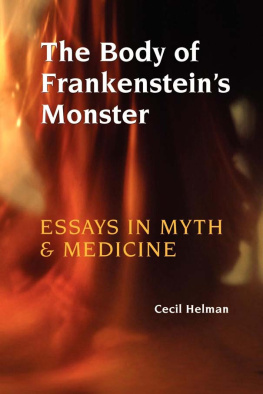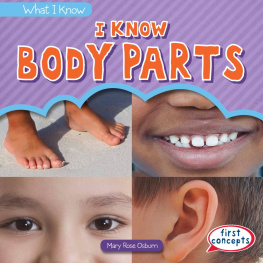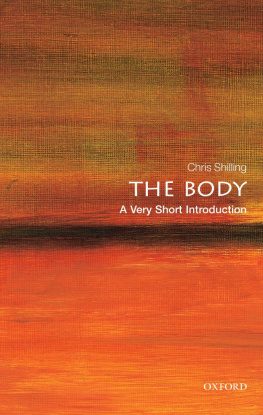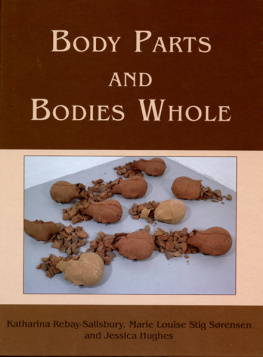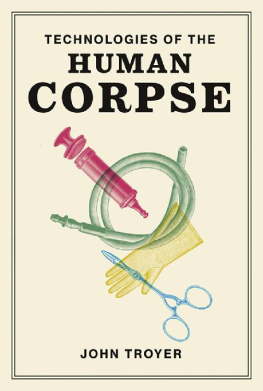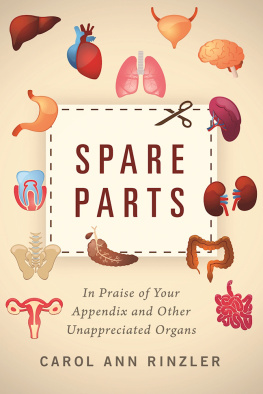Commodifying Bodies
Edited by
Nancy Scheper-Hughes and Loc Wacquant
Originally published as Volume 7, Numbers 23 of Body & Society 2001
This edition first published 2002
Nancy Scheper-Hughes and Loc Wacquant 2002
Published in association with theory, Culture & Society, Nottingham Trent University
Apart from any fair dealing for the purposes of research or private study, or criticism or review, as permitted under the Copyright, Designs and Patents Act, 1988, this publication may not be reproduced, stored or transmitted in any form, or by any means, only with the prior permission in writing of the publishers, or in the case of reprographic reproduction, in accordance with the terms of licences issued by the Copyright Licensing Agency. Inquiries concerning reproduction outside those terms should be sent to the publishers.
 | SAGE Publications Ltd
6 Bonhill Street
London EC2A 4PU |
SAGE Publications Inc
2455 Teller Road
Thousand Oaks, California 91320 |
SAGE Publications India Pvt Ltd
32, M-Block Market
Greater Kailash I
New Delhi 110 048 |
British Library Cataloguing in Publication Data
A catalogue record for this book is available from the British Library
ISBN 0 7619 4033 2
ISBN 0 7619 4034 0 (pbk)
Library of Congress Control Number: 2002105445
Typeset by Typestudy, Scarborough, North Yorkshire
Printed in Great Britain by The Alden Press, Oxford
Contents
Body & Society
EDITORIAL BOARD
EDITORS
Mike Featherstone, Nottingham Trent University
Bryan S. Turner, University of Cambridge
REVIEW EDITOR
Roger Bromley, Nottingham Trent University
EDITORIAL ASSISTANTS
Anders Hg Hansen, Jo Naylor, Adam Peterkin and Inga Scharf
ASSOCIATE EDITORS
Gary L. Albrecht, University of Illinois at Chicago
J.-M. Berthelot, Universit Ren Descartes Paris V, Sorbonne
Rosi Braidotti, State University of Utrecht
Robin Bunton, University of Teesside
Pasi Falk, University of Helsinki
Arthur Frank, University of Calgary
Sarah Franklin, Lancaster University
Ann Game, University of New South Wales, Sydney
Uta Gerhardt, University of Heidelberg
Rick Gruneau, Simon Fraser University, British Columbia
Mike Hepworth, University of Aberdeen
David Le Breton, University of Strasbourg
Mica Nava, University of East London
John ONeill, York University, Ontario
Elspeth Probyn, University of Sydney
Britt Robillard, University of Hawaii at Manoa
Kevin Robins, University of Newcastle upon Tyne
Chris Rojek, Nottingham Trent University
Nancy Scheper-Hughes, University of California
Michael Shapiro, University of Hawaii at Manoa
Chris Shilling, University of Portsmouth
Meenakshi Thapan, University of Delhi
Estella Tincknell, Nottingham Trent University
Loc Wacquant, University of California, Berkeley
Bodies for Sale Whole or in Parts
NANCY SCHEPER-HUGHES
While in the academy (as in this journal) the body is generally treated as a text or a trope or as a metaphor that is good to think with, in the larger society and in the global economy the body is generally viewed and treated as an object, albeit a highly fetishized one, and as a commodity that can be bartered, sold or stolen in divisible and alienable parts (see Berlinger, 1999; Sharp, 2000). The professions but especially reproductive medicine, transplant surgery, bioethics and biotechnology have been complicit in the process of commodifying bodies contributing to what Lawrence Cohen (1999) has called a new ethics of parts in which the divisible body (and its owners) respond rationally (it is presumed) to the demands of the market and to what I would call a politics of the belly, both contributing to new forms of late modern cannibalism (see Awaya, 1999; Scheper-Hughes, 1998a, 1998b).
Allow me to illustrate. In a Madras slum in South India several women explained to Cohen (1999) why they had taken the drastic step to sell a kidney. Forced to the brink by crippling debts or by the incapacity of a husband and primary wage earner, the women had sold a kidney to feed the family, the most common explanation given by kidney sellers world-wide. In Cape Town, South Africa, Dr Johan Brink, a transplant surgeon trained by Christian Barnard, explained to me why, under the old (apartheid) regime, human tissues and organs were harvested from black and mixed race bodies in the ICU (intensive care unit) without the familys knowledge or consent and transplanted into the bodies of more affluent white patients: The doctors were from conservative [i.e. Dutch reform] backgrounds and they followed a Christian family ethic. To them the idea of wasting a good organ was sinful, like wasting a good piece of bread. Last spring (2001), a middle-class couple from Orange County, California approached my organization, Organs Watch, for help they wanted to sell one of their kidneys to avoid losing their threatened family business, an outdoor flower stand. Coming from one of the most affluent counties in the United States, they tried to post the following ad on our Berkeley Organs Watch web site: Desperately need dentures! Will sell one good kidney left or right, your choice. In these troubling new contexts the commodified organ becomes an object of desire for one population and a commodity of last resort for the other and socially disadvantaged population (Scheper-Hughes, this issue).
So, while the body is a text it is always a great deal more than that and the articles collected for this special issue attempt to return sociological and anthropological thinking and practice to a consideration of the body as tangible, palpable and undeniably real material object. We are aware, however, that the desire to locate some essential truth, some basic ontological certitude of a Wittgen-steinian nature (If we do know that here is one hand, well grant you all the rest) in the irreducible reality of the body is always a dangerous move. Given the constant exchange of meanings between commodities as plain, matter-of-fact things-in-themselves and commodities as spirits and fetishes of human desire, all commodities possess what Lucas (see Taussig, 1980) called a phantom objectivity. So we are compelled to consider the commodified bodies discussed in these articles as both objects and as semimagical and symbolic representations. Above all, commodities are everywhere heavy with social meanings and significations (see Appadurai, 1986).
Meanwhile, commodification, the unifying theme of this issue, remains a problematic concept. What range of widely disparate body practices can be said to participate in the processes of commodification? The sympathetic magic of the primitive animist and his/her tool kit of purchased or stolen charismatic body parts (see Comaroff and Comaroff, 1999; Scheper-Hughes, 1998b)? The economically and psychologically costly open-casket funeral that demands a body, and preferably the correct one (Brandes, this issue)? Holy Communion? Eye, tissue and sperm



